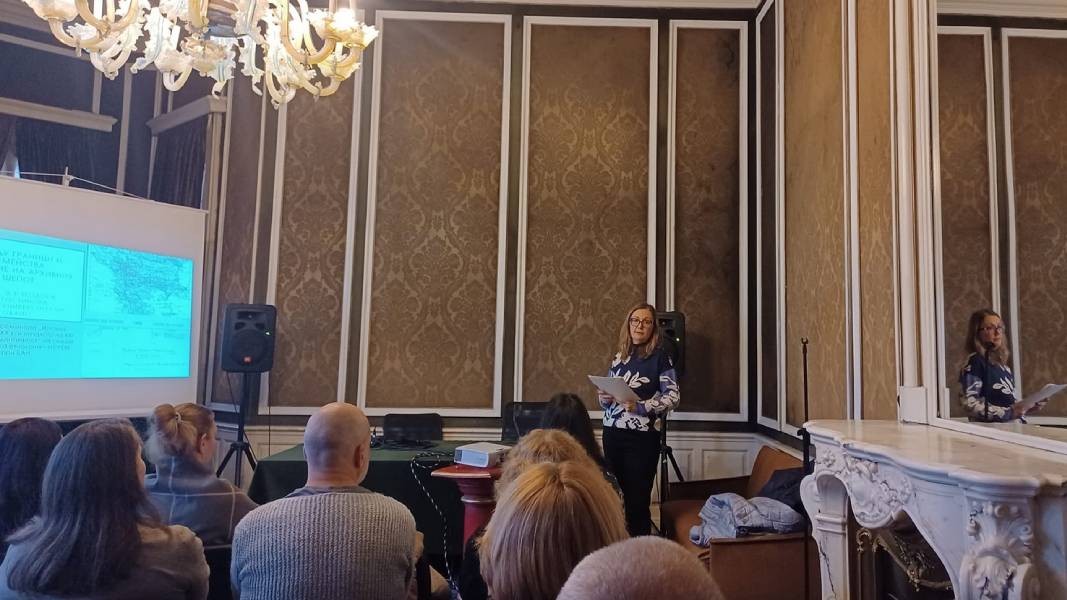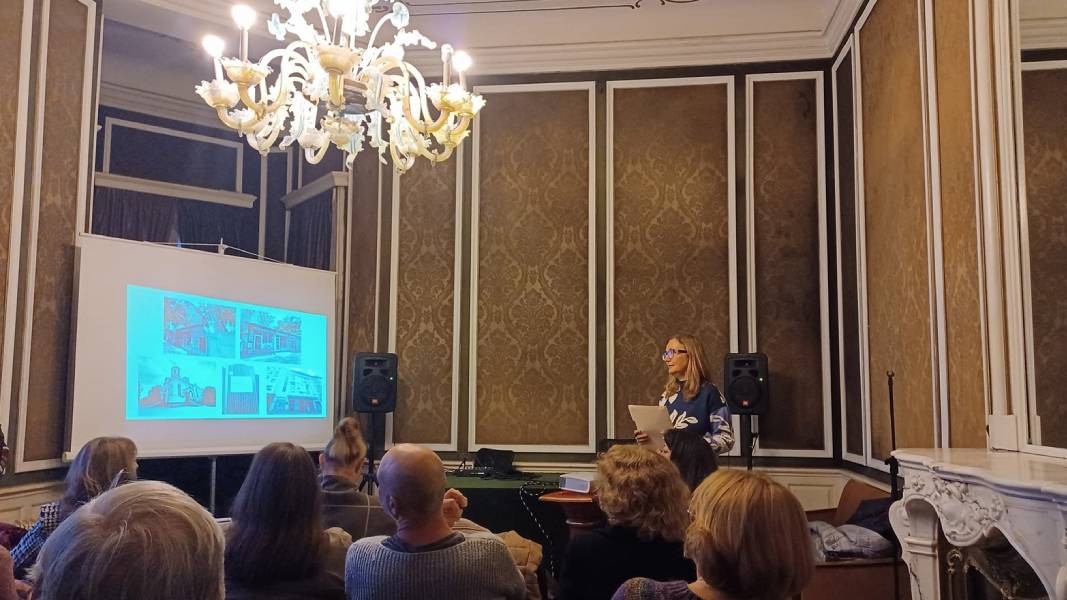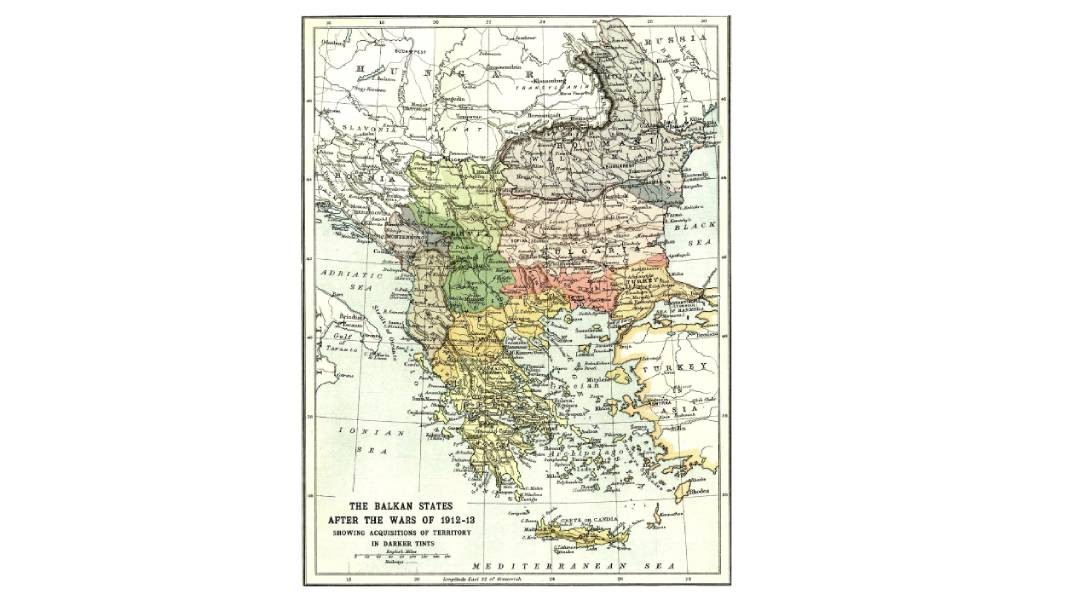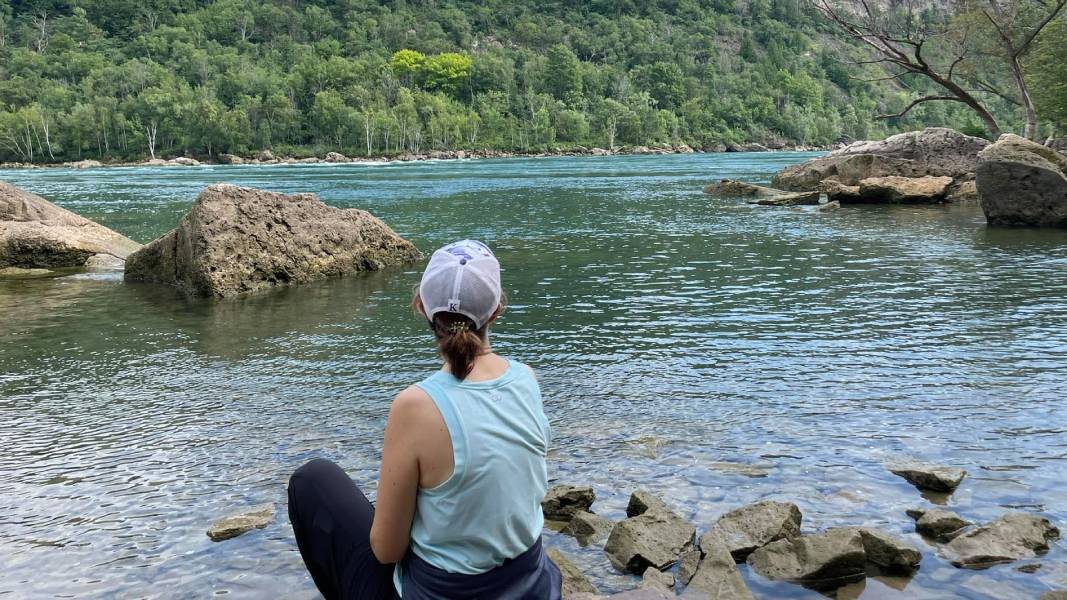In 1920, a young woman with a nine-month-old baby faced a difficult life choice – to stay in Sofia with her husband, to go to her parents in Edirne, or to choose her brother who had settled in Thessaloniki. After two months of interrogations, requests, letters and diplomatic notes, Evgenia came to an unexpected decision about which country she wants to live in and which family she wants to join.
Using the methods of the so-called critical historical fabulation, which allows us to hear the "archival whisper" of historical figures without their own documental traces, Prof. Theodora Dragostinova from the Ohio State University told the audience at the Institute of Ethnology and Folklore Studies at the Bulgarian Academy of Sciences about a life story. In it, the historian illustrated the dilemmas of many ordinary people in the decade after World War I, in which state borders and family destinies intertwined.

"The lecture (on the topic "Between Borders and Families: In Search of the Archival Whisper") is based on work in the state archives in Sofia,” Prof. Theodora Dragostinova says. “Quite unexpectedly, I found a secret box and in it there were documents that few people had ever seen before. When I dug deeper, I discovered the issue of children separated from their parents in 1920, whom the international community was trying to repatriate to their homelands. However, it turned out that bringing families together after six years of fighting and three wars, is a complicated task. Many life stories emerged from these archives and one of them was that of Evgenia - a 20-year-old mother, married to a Bulgarian husband and with parents living in Greece. Unfortunately, whenever there is a war, it always ends up with a situation of separated families and orphaned children. This is the case today with the wars in Ukraine, Syria, Sudan, Gaza."

Prof. Theodora Dragostinova is a historian of the Balkans, who deals with migration, nationalism, cultural diplomacy, issues of movement - of people, ideas, definitions. She also teaches modern European and Eastern European history to students in Ohio and is the author of several books,
"I went to the United States to write a dissertation on a topic about Eastern European,” Prof. Theodora Dragostinova says. “I definitely think that my migrant journey inspires me to continue working on topics related to Bulgaria and Europe. But migration and nationalism remain some of the most important topics which I work on."
In what way are studies on our region interesting and also useful across the Ocean, revealing global processes?

"Any country can be used to illustrate global processes,” Prof. Theodora Dragostinova answers. – The important thing is to ask interesting questions and be able to answer them theoretically. In my research work, I focused on small countries. Bulgaria as a small country is an example of global processes. My first book was on the Greek minority in our country, and the second – on our cultural diplomacy during the Cold War. I am currently working on divided families in the post-war decade in Bulgaria. All these topics raise global, universal questions."
That is why, according to the historian, it is good to remember and realize what happened in our recent history when we look at the shortcomings of modern society:

"The interesting thing is that the topic of my lecture was focused on uncertainty as a historical experience and anthropologists pointed out that the phenomenon as a modern reality manifests itself very sharply. And since we live in this uncertainty, it is good to go back in time and see how people felt. Imagine Bulgaria after three wars, after the loss of territories, after migration waves, during which 280 thousand refugees arrived. Don't you think that the uncertainty a century ago in 1924 was greater than now? At the moment we think that we live in the most uncertain times, but this is hardly so."
Publication in English: Al. Markov
Photos: Diana Tsankova, personal archive Theodora Dragostinova, IEFSEM - BAS
Nickolai Kolarov is a Bulgarian cellist who has been building an academic career and giving concerts in Minnesota, the US for almost 30 years. His life overseas started with a master’s degree in string instruments in Kansas City. He left in 1995 to..
Bulgarian football legend Hristo Stoichkov has accepted an invitation from FIFA President Gianni Infantino to join his team . "It is a great honor for me to accept Gianni Infantino’s invitation to work for FIFA. I will represent both myself and..
He says he has not felt like a foreigner in Bulgaria for a long time. This is his home, he has learnt Bulgarian and like most of our compatriots he is interested in the political situation in the country. But his greatest passion, what fills his days with..

+359 2 9336 661
